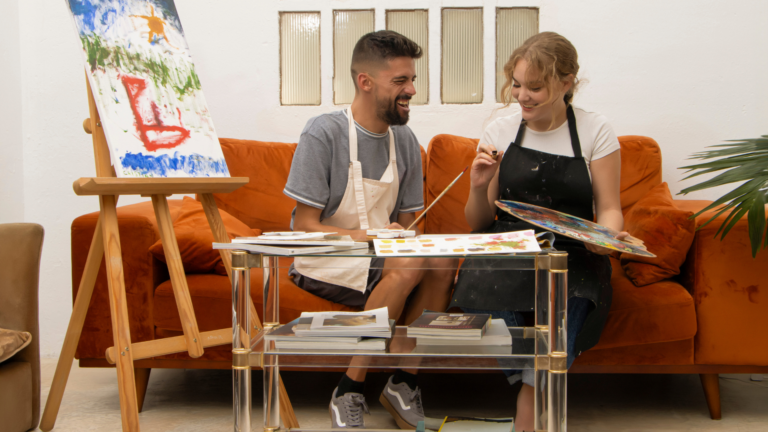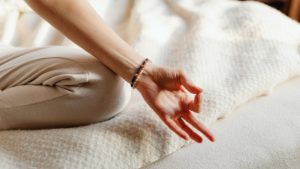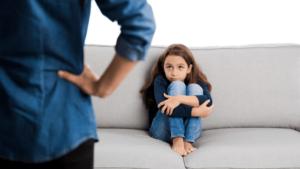Art has long been recognized as a powerful medium for self-expression and creativity. Beyond its aesthetic value, engaging with art can significantly support mental wellbeing. From reducing stress to enhancing self-awareness, the benefits of art for mental health are profound and multifaceted. Here’s how art supports mental wellbeing.
Stress Reduction
Creating or viewing art can be a calming activity that helps reduce stress. The process of making art allows individuals to focus on the present moment, which can act as a form of mindfulness. This focus on the “here and now” helps to quiet the mind, reduce anxiety, and lower cortisol levels.
Emotional Expression
Art provides a safe and constructive outlet for expressing emotions. For those who find it difficult to articulate their feelings through words, drawing, painting, or sculpting can help communicate complex emotions. This form of expression can be particularly therapeutic, aiding in the release and understanding of suppressed emotions.
Improved Mood
Engaging in creative activities has been shown to increase levels of dopamine, the brain’s “feel-good” chemical. This boost in dopamine can enhance mood and provide a sense of accomplishment and satisfaction. Whether it’s through completing a project or simply enjoying the process, art can contribute to a happier, more positive outlook.
Enhanced Self-Awareness
Creating art encourages introspection and self-reflection. By exploring personal themes and ideas through art, individuals can gain deeper insights into their thoughts, feelings, and behaviors. This enhanced self-awareness can lead to personal growth and a better understanding of oneself.
Cognitive Development
Art stimulates the brain and enhances cognitive functions. Engaging in artistic activities can improve problem-solving skills, critical thinking, and even memory. The process of creating art requires the brain to make decisions and solve problems, which can help keep the mind sharp and agile.
Social Connection
Participating in art classes or group art activities can foster a sense of community and belonging. Sharing the creative process with others provides opportunities for social interaction and can help combat feelings of loneliness and isolation. These social connections are vital for mental health and overall wellbeing.
Therapeutic Effects
Art therapy is a recognized form of treatment for various mental health conditions, including depression, anxiety, PTSD, and more. Under the guidance of a trained art therapist, individuals use art to explore their emotions, develop coping skills, and improve their mental health. Art therapy can be particularly effective because it addresses issues at both conscious and subconscious levels.
Increased Resilience
The creative process often involves overcoming challenges and solving problems, which can build resilience. The ability to persist through difficulties and experiment with new solutions in art can translate to better coping skills in real-life situations. This resilience can enhance overall mental toughness and adaptability.
Mindfulness and Relaxation
Art activities like coloring, knitting, or sculpting can induce a state of flow, where time seems to stand still and worries fade away. This meditative state promotes relaxation and can be a powerful antidote to the stress of daily life. Regularly engaging in such activities can help maintain a sense of calm and balance.
Boosts Self-Esteem
Completing an art project or improving artistic skills over time can significantly boost self-esteem and confidence. The sense of achievement and pride in one’s creations fosters a positive self-image and encourages further creative endeavors, reinforcing a cycle of positive mental health benefits.
View this post on Instagram
A post shared by Eva Papastergiou | Psychologist & Registered Art Therapist (@psy_and_art_therapy)
Art is a versatile and accessible tool for enhancing mental wellbeing. Whether through personal creation or communal activities, the benefits of engaging with art are wide-ranging and deeply impactful. Incorporating art into your life, whether as a hobby, a form of therapy, or a means of relaxation, can contribute significantly to mental health and overall happiness. By embracing the creative process, individuals can unlock new pathways to emotional and psychological resilience, making art a valuable component of holistic wellbeing.
Source Credits: psy_and_art_therapy
Also Read: 13 Signs You’re Dealing with Inner Childhood Wounds: Recognizing the Impact







